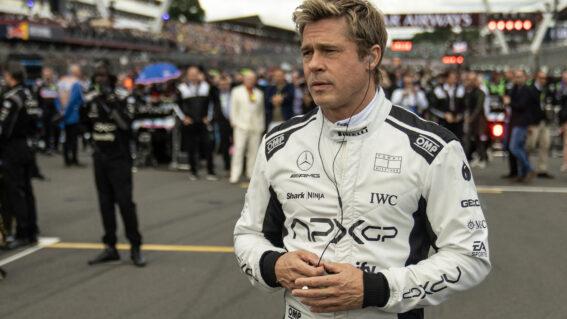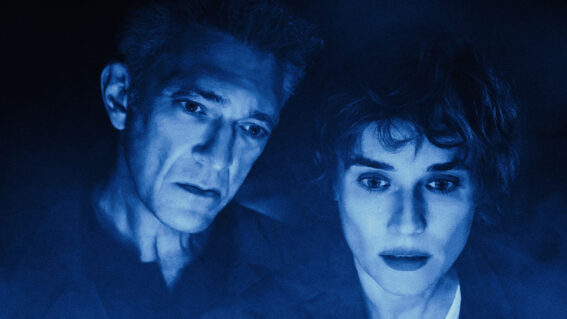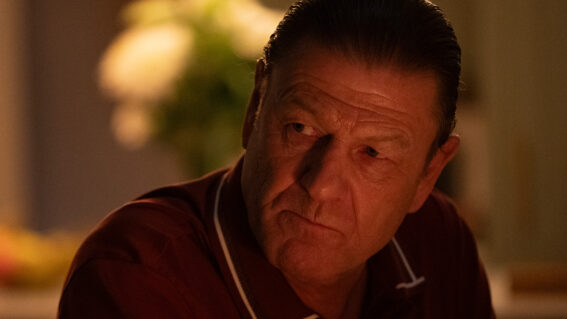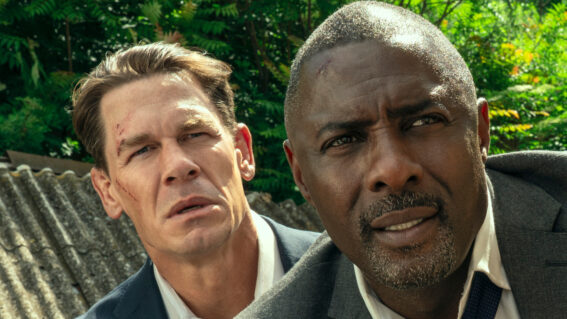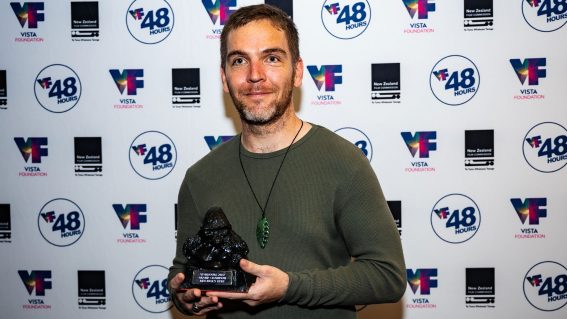The best movies of 2025 so far… and where to watch them
These are the movies we’ve gotten excited about this year – and where you can watch them.

These are the movies we’ve gotten excited about this year – and where you can watch them.
Can’t decide what to watch? Well, look no further—there’s bound to be something on this list of our fave movies so far this year, whether you’re watching for the first time, or revisiting a recent highlight.
This post will be updated each month with new recommendations for viewing both in cinemas and at home. And, for the avoidance of any confusion, these are titles we covered in 2025—as opposed to what a formal release year might say. Look, we just want you to watch some good stuff, OK? In the unlikely event you don’t find something to watch below, I invite you to check out the Flicks countdown of our 20 favourite films of 2024.
Related reading:
* Palme d’Or winner returns to Cannes with blunt, uncompromising Alpha
* Cannes 2025: award winners and other highlights to look out for
* Cannes goes Peak Wes Anderson with The Phoenician Scheme
To help keep up with movies and shows, our watchlist feature lets you keep track of them, and our notifications tell you when they land in cinemas or on streamers. Join Flicks (it’s free) to start using these features, and access exclusive rewards: ticket giveaways, discount offers and—from time to time—advanced screenings.
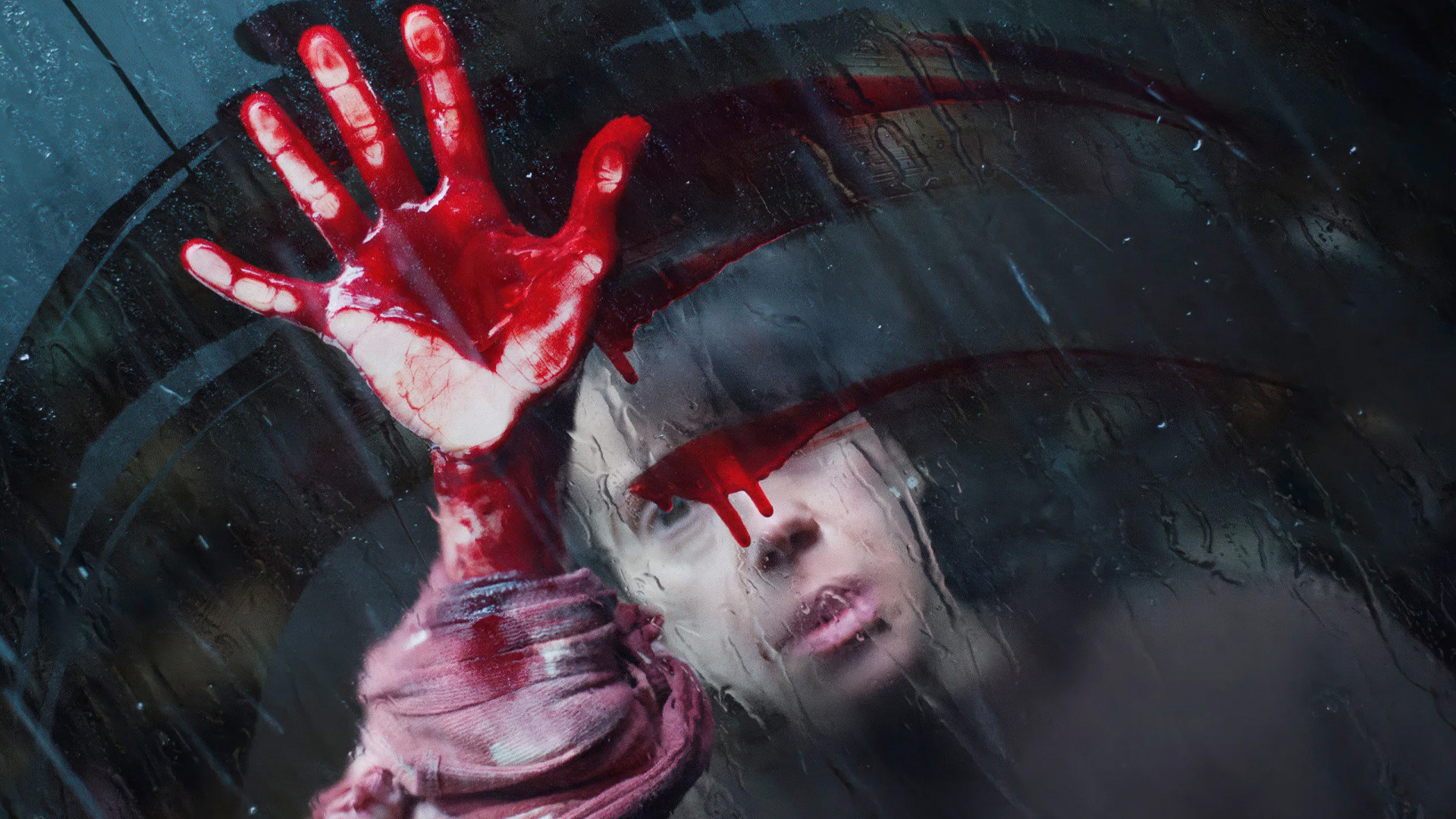
Bring Her Back
The brothers behind horror smash Talk To Me return with another slice of Australian horror. The great Sally Hawkins (Paddington, The Shape of Water) stars, plays Laura, a former social worker who takes in siblings Piper (Sora Wong) Andy (Billy Barratt) as foster kids, but is (mis)managing her own trauma: the loss of her birth daughter.
With that info and the film’s title and genre in mind, you might be able to make an educated guess about the general direction things are heading in… but you’re likely not prepared for how far Bring Her Back is prepared to go. As I put it in an interview with Danny and Michael Philippou: “The gore’s grunty, even for a seasoned horror fan (earning the film an R18 rating in Aotearoa and MA15+ in Australia), and the grief and emotion palpable.”

Bono: Stories of Surrender
Andrew Dominik directs this ambitious documentary, capturing U2 megastar Bono in a performance of his one-man show Stories of Surrender: An Evening of Words, Music and Some Mischief…, itself adapted from his 2022 memoir. The crisp monochrome film is available in standard 2D film and also an Apple Immersive Video for the Apple Vision Pro headset (the first feature-length film released in the format).
With stunning visual effects in the immersive format that don’t appear in the 2D version, Stories of Surrender takes advantage of the headset’s features. “Casting my mind back, the immersive video almost felt like a dream,” writes Luke Buckmaster: “A crazy, eye-popping, fully dimensional dream, filling the space between me and the screen, and the stage and performer.”
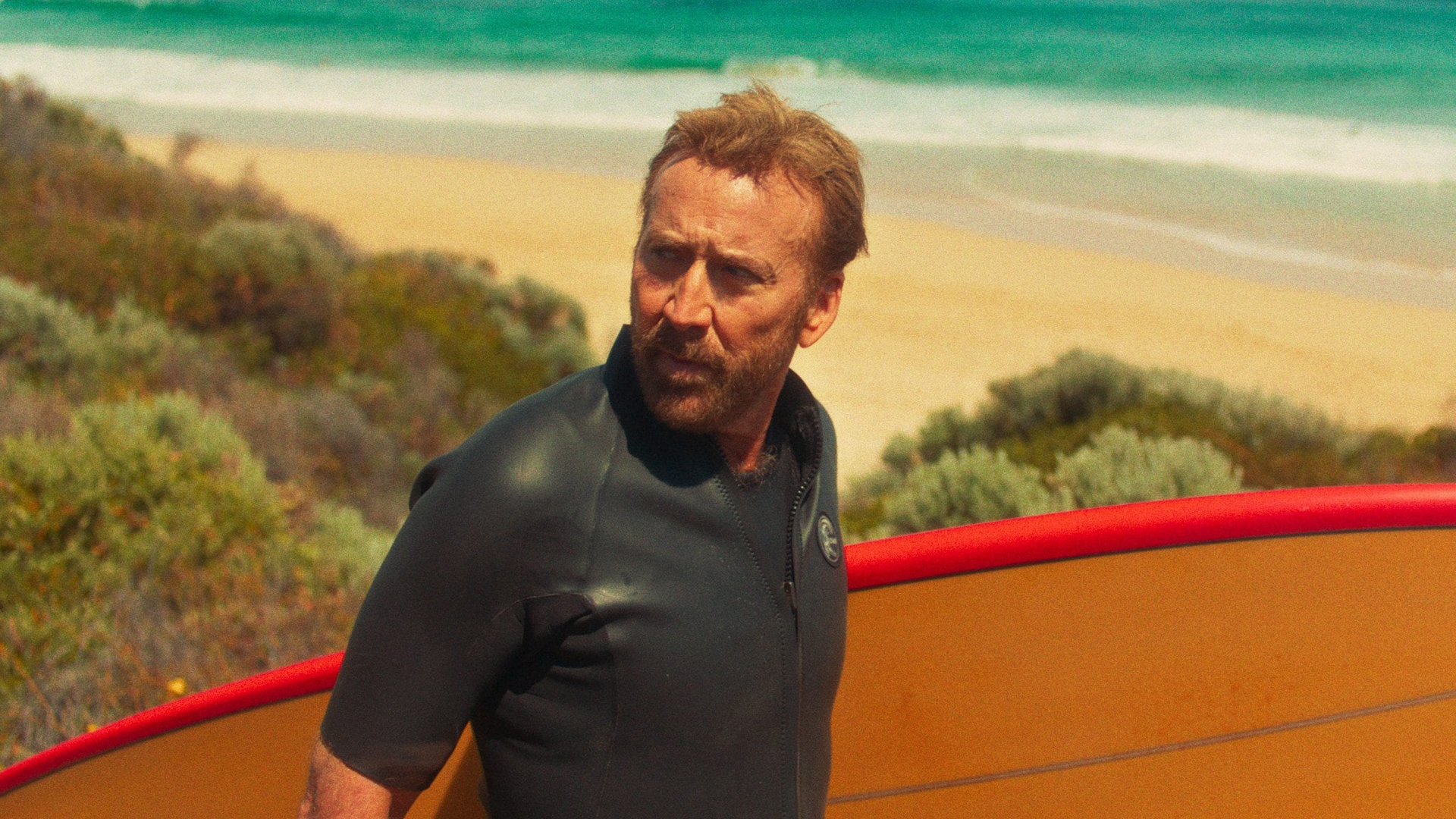
The Surfer
Nicolas Cage stars in this comic thriller, from the director of 2019’s Vivarium, as a man humiliated in front of his son when he goes to the wrong Australian beach. Wounded, he decides to remain at the beach in defiance of the local gang of surfers, with escalating conflict (and, since it’s Cage) increasing intensity and perhaps a little insanity.
And that’s what we’re here for, like most Nicolas Cage outings, writes Rory Doherty: “It’s good to see Cage relishing his part—we know very well he’s perfect as someone losing grip with reality, though the early scenes calling for straight-faced normalcy are over-egged too much when the strangeness should be entirely coming from his environment.”
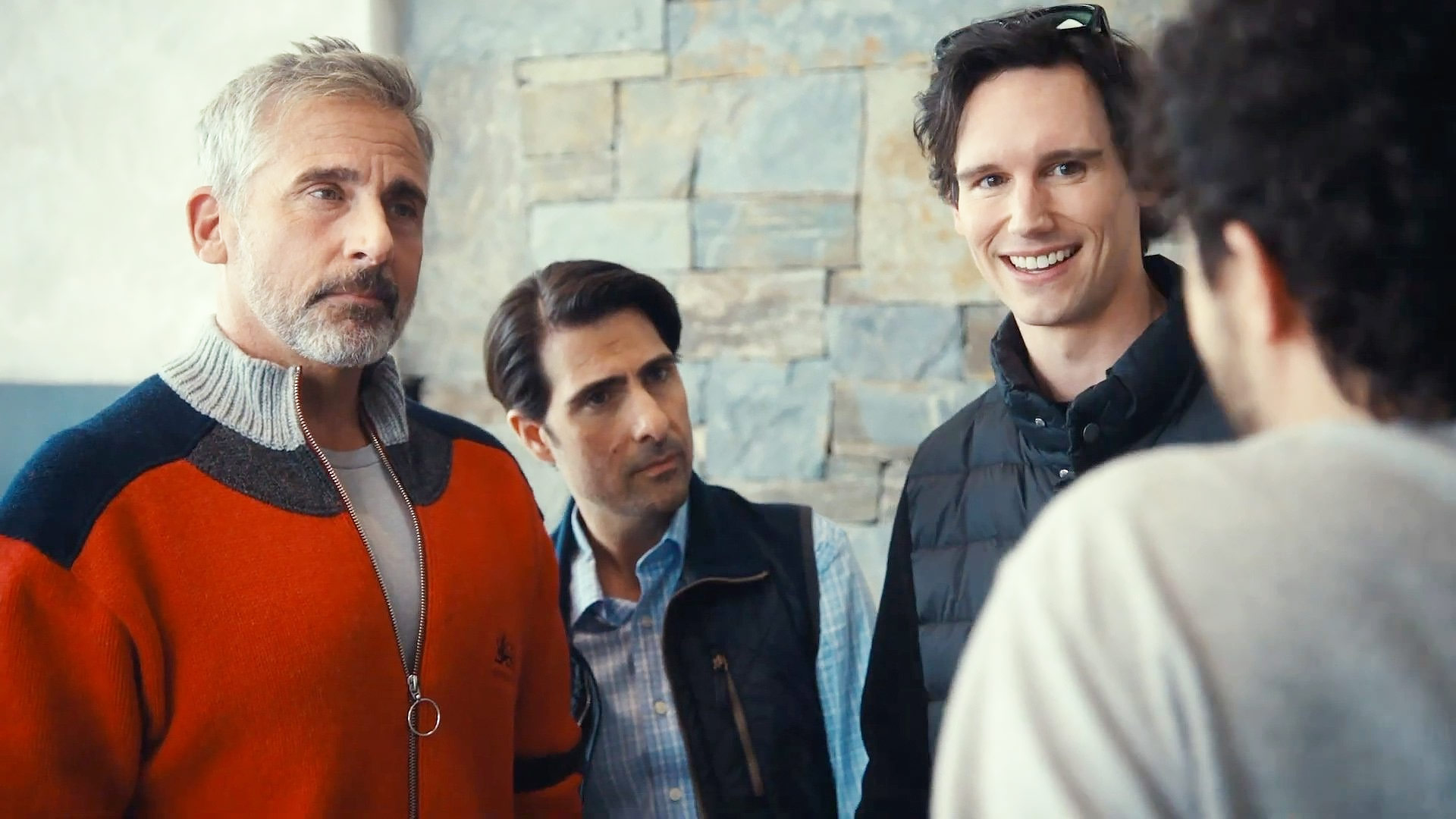
Mountainhead
In the wake of Succession, writer-director Jesse Armstrong shows his pen is as sharp as ever in this bleak satire set against the backdrop of a world sliding into an abyss of fake news and AI-fueled chaos. Sound familiar? Against this backdrop, four titans of the tech industry (played by Steve Carell, Jason Schwartzman, Cory Michael Smith and Ramy Youssef) gather for a weekend getaway, with their own power struggles to contend with.
The results, according to Luke Buckmaster? “Acid-dripping satire, hermetically sealed inside its characters’ fun house mirror universe, with no compulsion towards moral signposting or what the director probably considers to be retrograde notions of justice and comeuppance.”
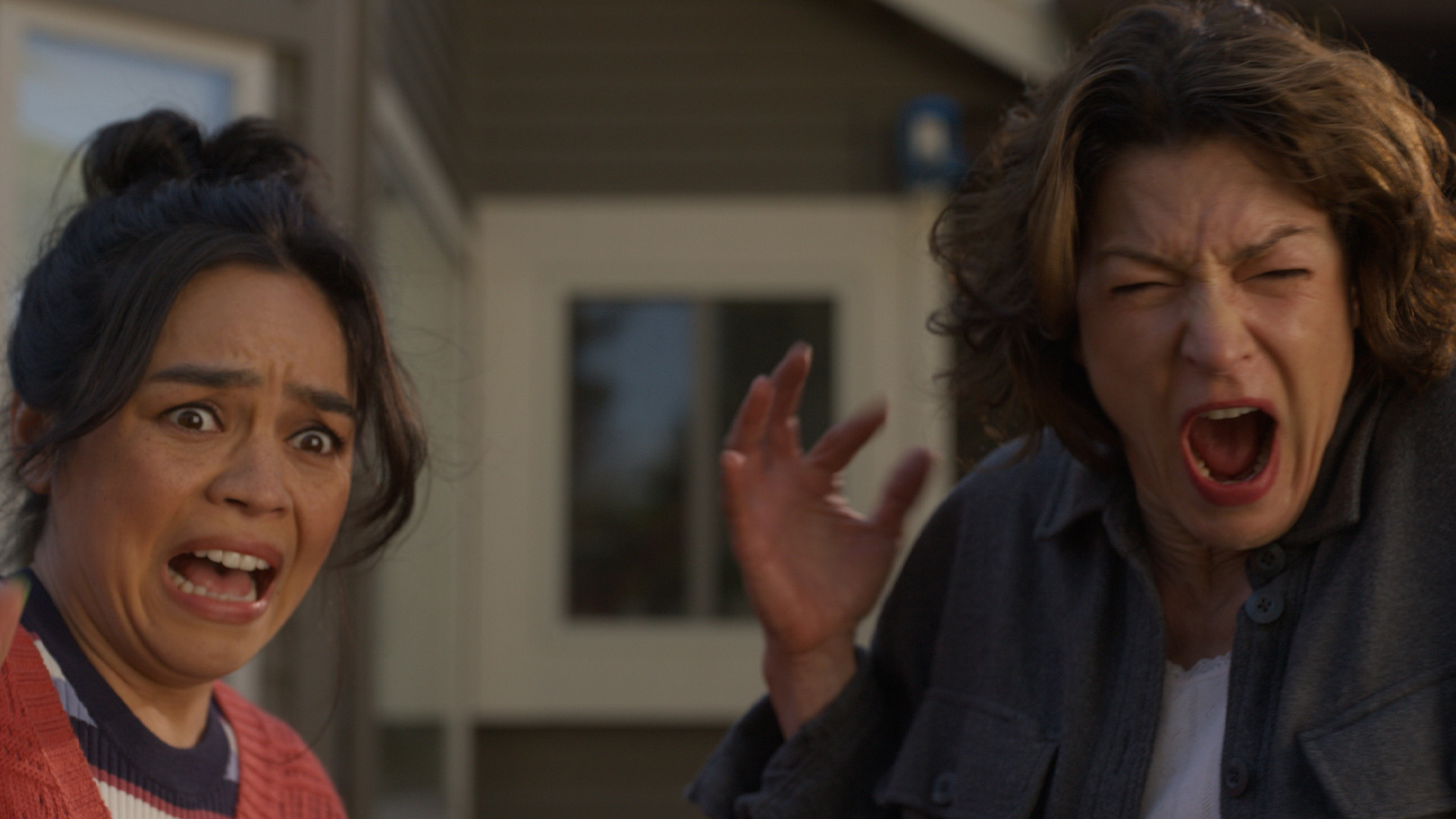
Final Destination: Bloodlines
A beloved horror franchise returns after more than a decade with a new instalment—and a renewed enthusiasm for elaborate Rube Goldberg-like tableaux of terror in everyday settings. Bloodlines follows the present-day descendants of someone who was never meant to survive a horrific mass accident, pissing Death off in a way familiar to fans of the series.
In a feature focusing on the grisly head trauma inflicted onscreen over the duration of the series, Daniel Rutledge characterises the brutality: “This series delivers a purer joy than most horrors, leaning into the silliness without tipping into self-parody, and serving up bucketloads of gore without a hint of grimdark misery”

Deaf President Now!
The ‘Birth of a Movement’ doco subgenre gets another strong entry with this film, depicting a calamitous week for Gallaudet University—the world’s first deaf university—in 1988. As the board trustees deliberate over the appointment of a new president, the moment feels right for a groundbreaking step and a deaf candidate to take the top job for the first time. But all hell is about to break loose…
“We should never, as this documentary rightly implies, view societal and institutional change as inevitable,” writes Luke Buckmaster. “It is fought for and surrendered. Sometimes, as is the case here, with an almighty roar.”
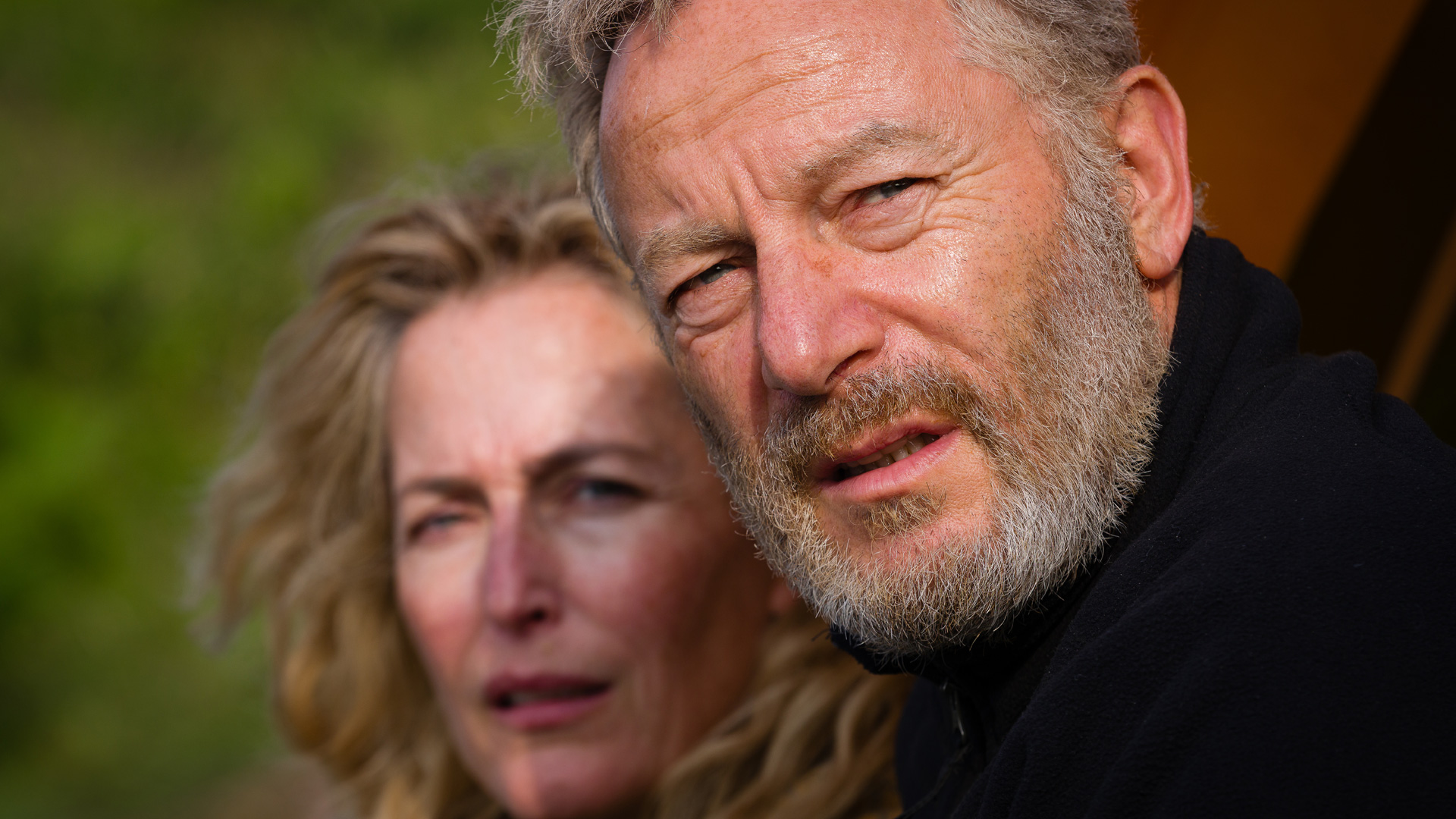
The Salt Path
Like his character in The White Lotus, Jason Isaacs again finds his comfortable life upended as one half of a couple who, suddenly homeless and facing a grim future, set out on a year-long hike across England’s longest footpath—the Salt Path. Isaacs is opposite the great Gillian Anderson here as real-life pair Moth and Raynor “Ray” Winn in this adaptation of Ray’s memoir/travel diary, a completely different type of man stuck in very similar circumstances to his White Lotus counterpart.
“There are more striking contrasts to discover between The White Lotus’s Jason Isaacs and The Salt Path’s Jason Isaacs—namely the materialism and attitudes towards prescription drugs,” reflects Liam Maguren. “But the most striking thing is, mere minutes into the movie, how quickly you forget you’re watching the same person.”
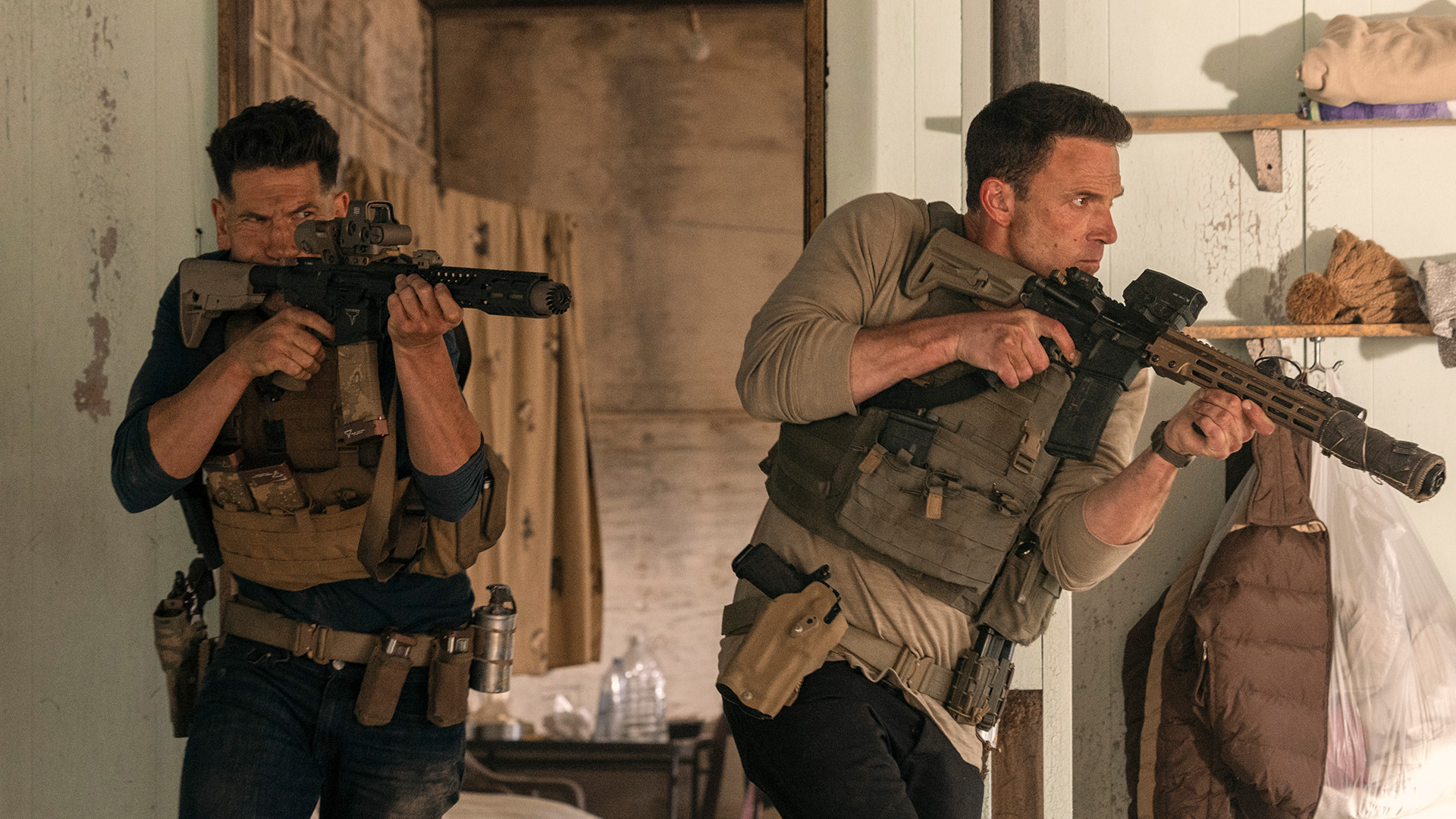
The Accountant 2
Ben Affleck is back in a sequel to the 2016 action thriller that introduced his heroic, um, certified public accountant (take that, “working man” Jason Statham). Affleck returns for more assault rifle-toting fun, with Jon Bernthal by his side as an equally butt-kicking brother.
“With its overt fish-out-of-water comedy, broad bro-ey sentimentality, and commitment to the ludicrous “autistic secret agent” world-building, The Accountant 2 is a thousand times more entertaining than its predecessor, says Rory Doherty in a feature asking the same question we all must at some point: should you really bring family into mercenary missions..?
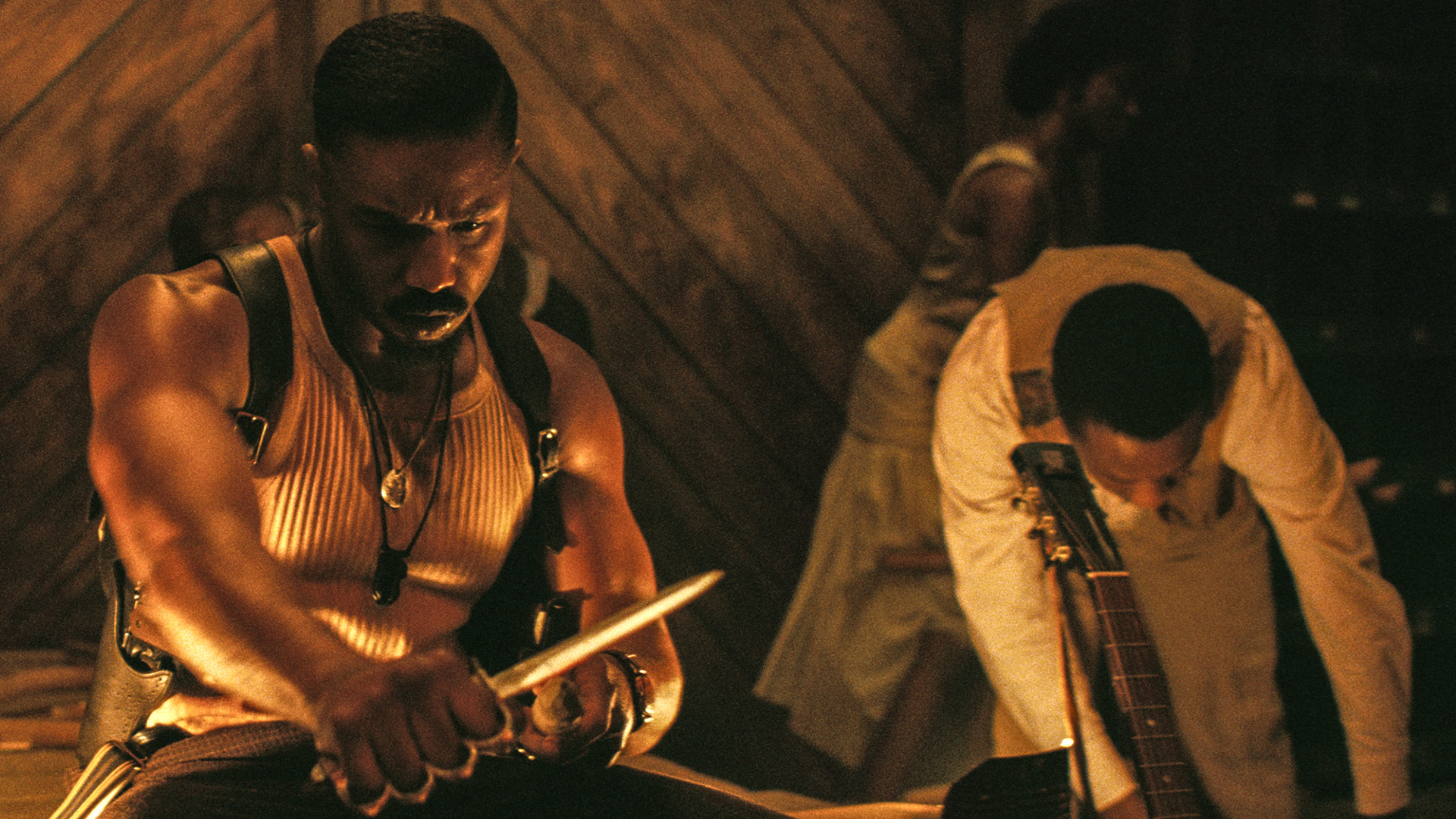
Sinners
Defying box office gravity by retaining, and in Australasia actually growing, its audience beyond opening week, Sinners deserves the positive word of mouth that’s been adding buoyancy to Ryan Coogler’s period vampire pic. Starring dual Michael B. Jordans, foregrounding the power of music, and with a suitably fearsome fanged villain in Jack O’Connell, this cries out for a trip to the biggest screen you can find.
David Michael Brown called Sinners “an audacious, ultra-violent, foot-tapping, high-kicking historical horror with two teeth in its neck and a twist in its tail,” in his feature on the film, adding: “Not only does uphold horrific vampiric expectations, it injects new blood into the perilous proceedings.”

Marlon Williams: Ngā Ao E Rua – Two Worlds
Marlon Williams: Ngā Ao E Rua - Two Worlds
Acclaimed musician Marlon Williams’ journey to reconnect with te ao and te reo Māori is full of insightful and personal moments. Filmmaker Ursula Grace Williams traces the songwriter and performer’s multi-year project to make an album in the native language of Aotearoa, a creative process taking place as the country stands up to the anti-Māori policies of its government.
“I knew that one way or another, whatever happened, people would be watching me being vulnerable,” Marlon told me in an interview that also features insights from the director. Marlon also recommends a very different music documentary in the form of Bros: After The Screaming Stops…
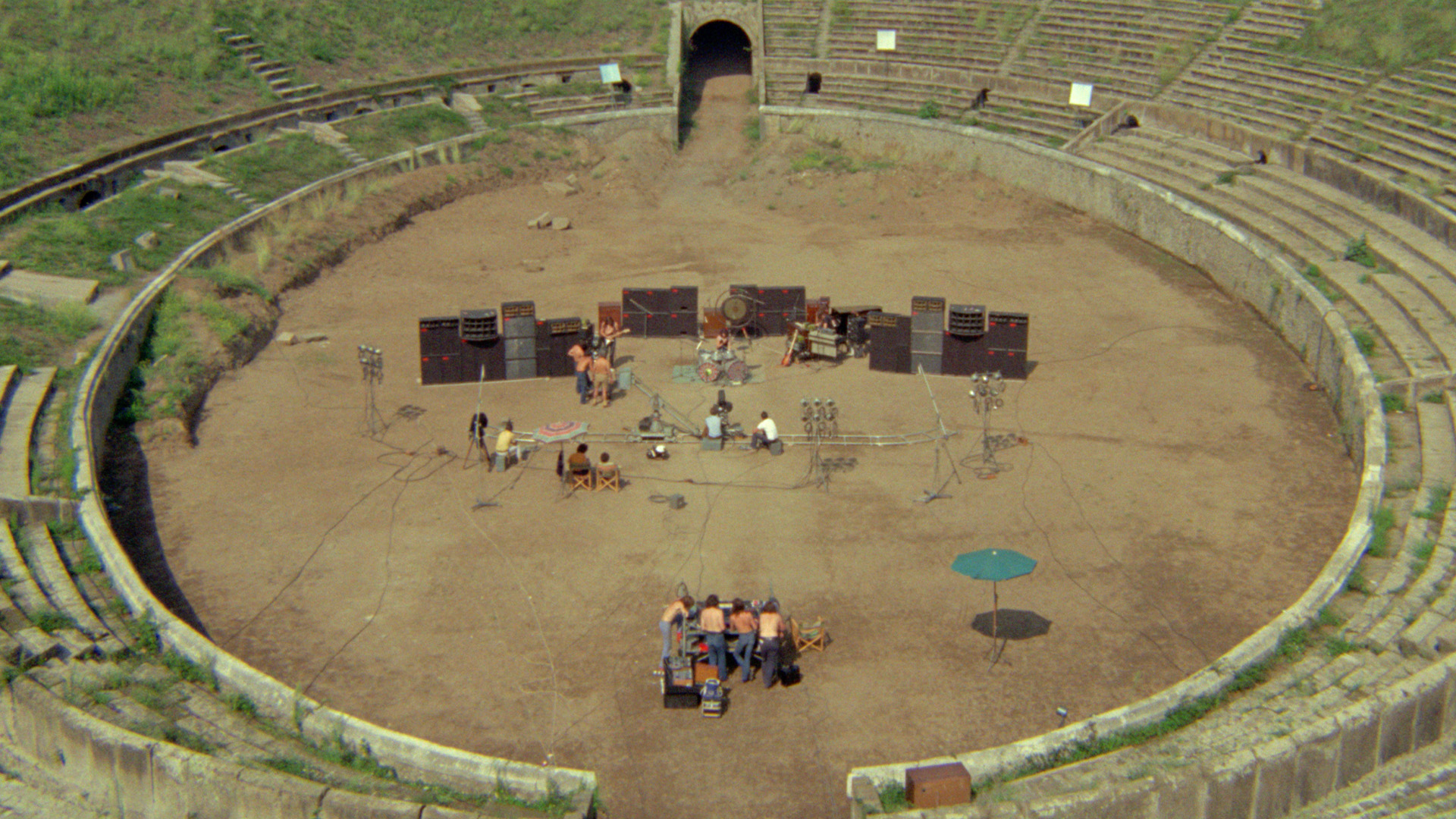
Pink Floyd at Pompeii: MCMLXXII
Pink Floyd at Pompeii: MCMLXXII
One of the best music movies ever made. Pink Floyd’s performance, deliciously shot on film in an otherwise empty ancient Pompeii amphitheatre, looks and sounds better than ever—remastered from the original footage to provide further immersion. Those of you who joined me in seeing this in its limited IMAX sessions will know what we’re on about.
Whether it’s the live performance, gorgeous cinematography, setting or Spinal Tap-ish moments, there’s always something interesting going on here. Keep your eyes out for extra screenings or its inevitable home video release.
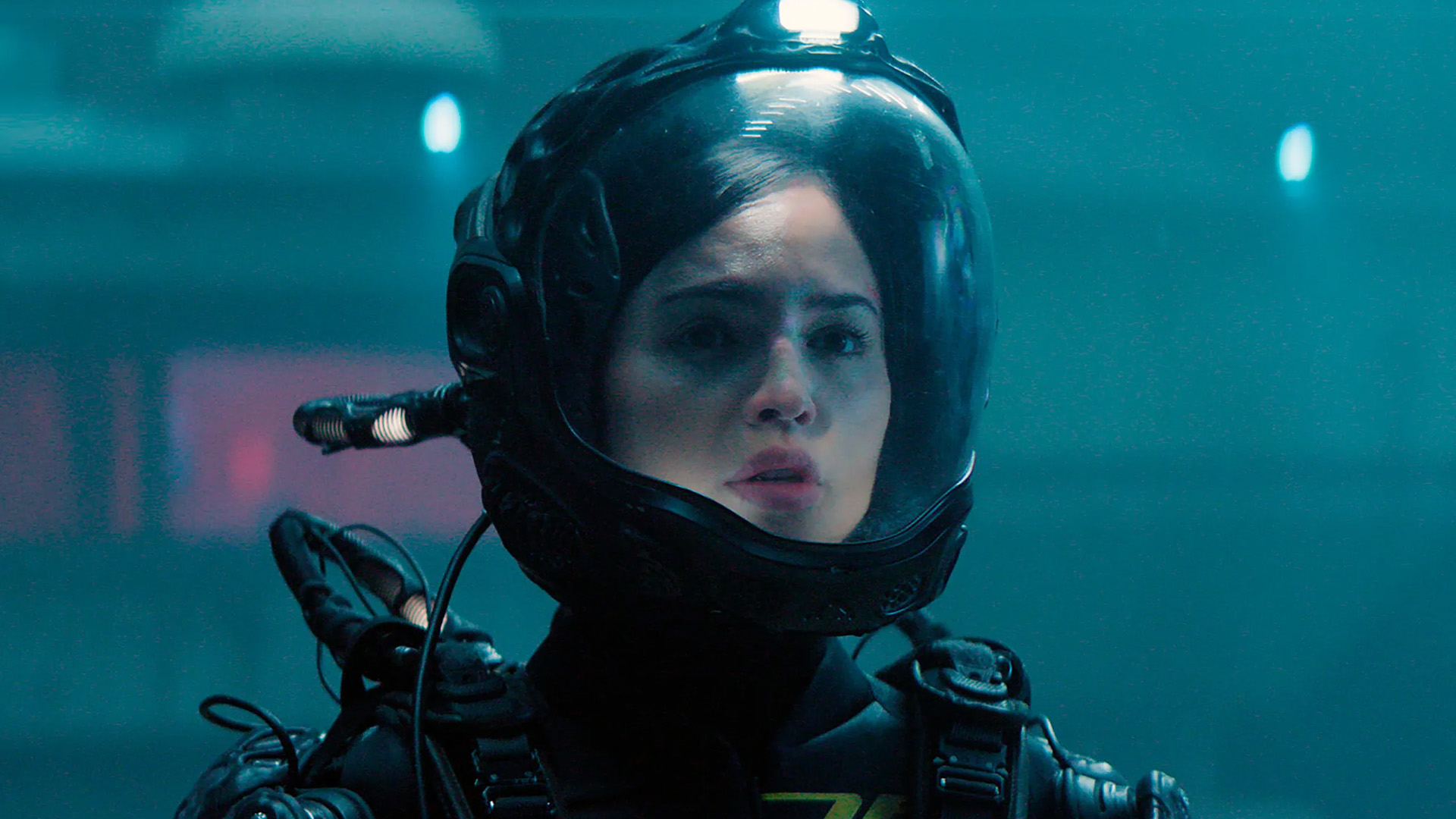
Ash
Claustrophobic sci-fi thriller, set inside a spacecraft that’s landed to explore a distant planet. Which would sound pretty standard sci-fi stuff… if it weren’t for the grotesque, literally face-melting hallucinatory visions being experienced by Riya (Eiza González) as she tries to piece events together.
I described Flying Lotus’s space-set horror freak-out as an exercise in style and mood more than characters or dialogue, finding ways to establish tone and terror on a small budget – one that still allows for grotesque, head-smashing imagery.
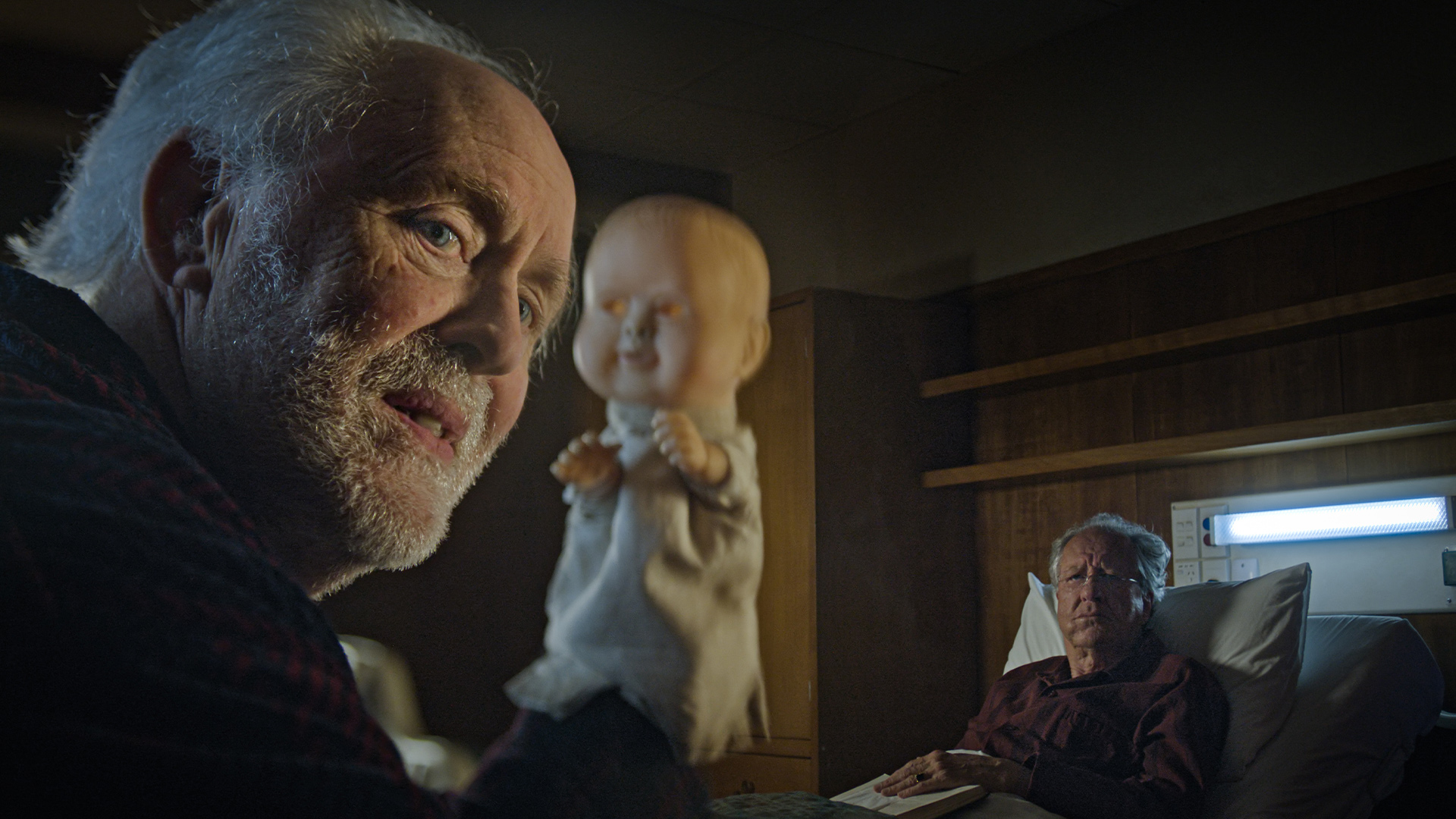
The Rule of Jenny Pen
John Lithgow and Geoffrey Rush star in James Ashcroft’s sophomore outing, the Stephen King-recommended Aotearoa-set thriller The Rule of Jenny Pen. Seen from the perspective of Rush’s character Stefan Mortensen, a judge who’s suffering debilitating strokes, it’s a story that sees the inhabitants of a rest home tormented by bullies in their midst—the sadistic Crealy (Lithgow) and the puppet he wields (or is that vice versa?) Jenny Pen.
It’s a “complex, frightening film,” writes Tony Stamp in his feature We almost forgot how good John Lithgow is at being evil. Elsewhere on Flicks, you can read my in-depth chat with director James Ashcroft, which (among other things) includes conversation about the punitive side of New Zealand—and our punishing accent.
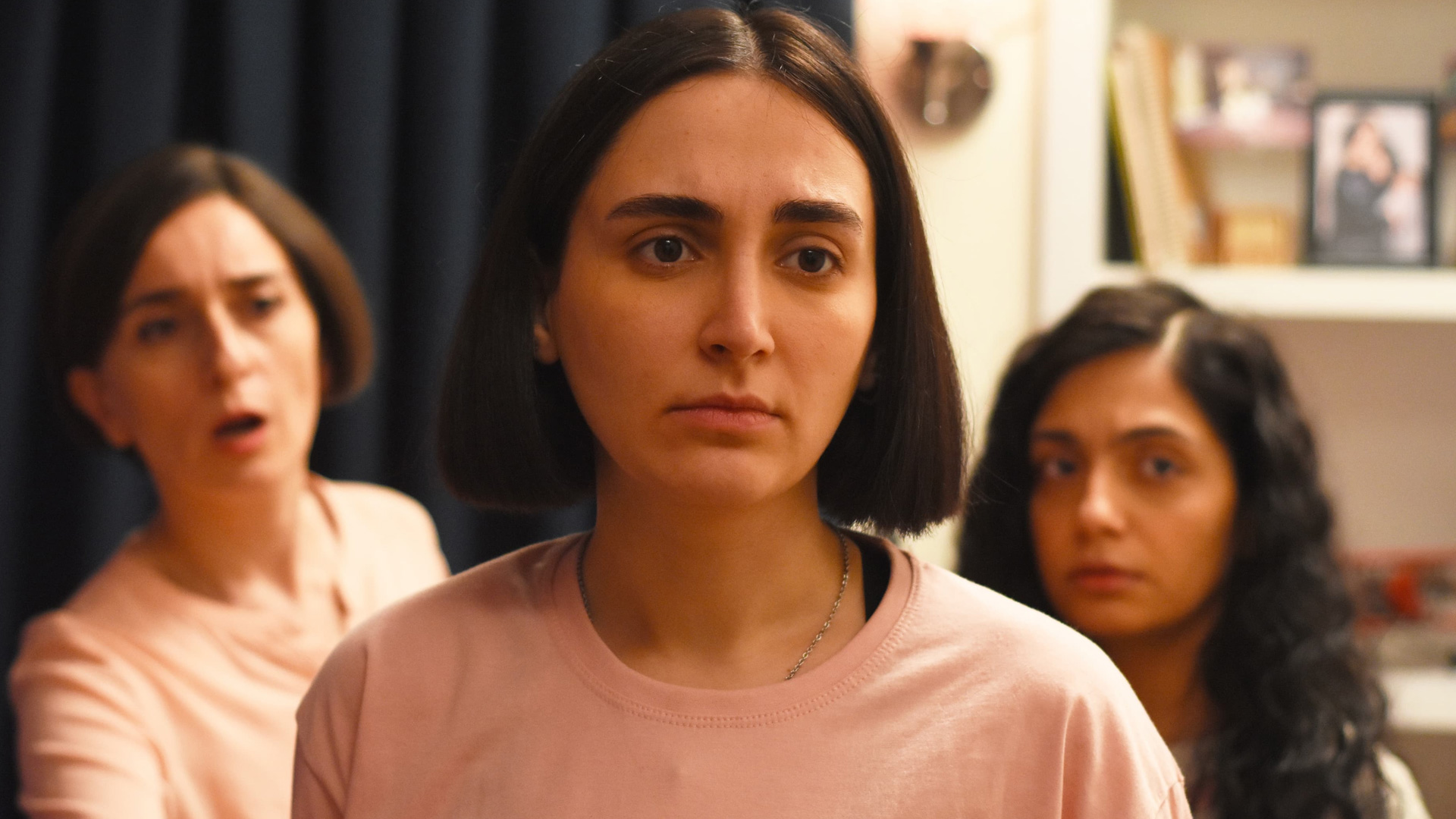
The Seed of the Sacred Fig
A hit at Cannes this year, one of Iran’s most daringly political dramas seizes on the waves of protests that followed killings by the country’s “morality police”. Iman is an inspector of the Revolutionary Court who learns he’s expected to rubber-stamp the execution of protestors—with no consideration of evidence. Following the protests and violent state reprisals on social media, Iman’s daughters are horrified by events—the schisms within their family mirroring events outside, and carrying their own threat of harm.
As Liam Maguren observes in his feature on the film, shot in secret by a director standing up to his government: “It is about defiance and it is defiance, an exceedingly rare piece of cinema where both the film and the filmmaking are important works of art.”
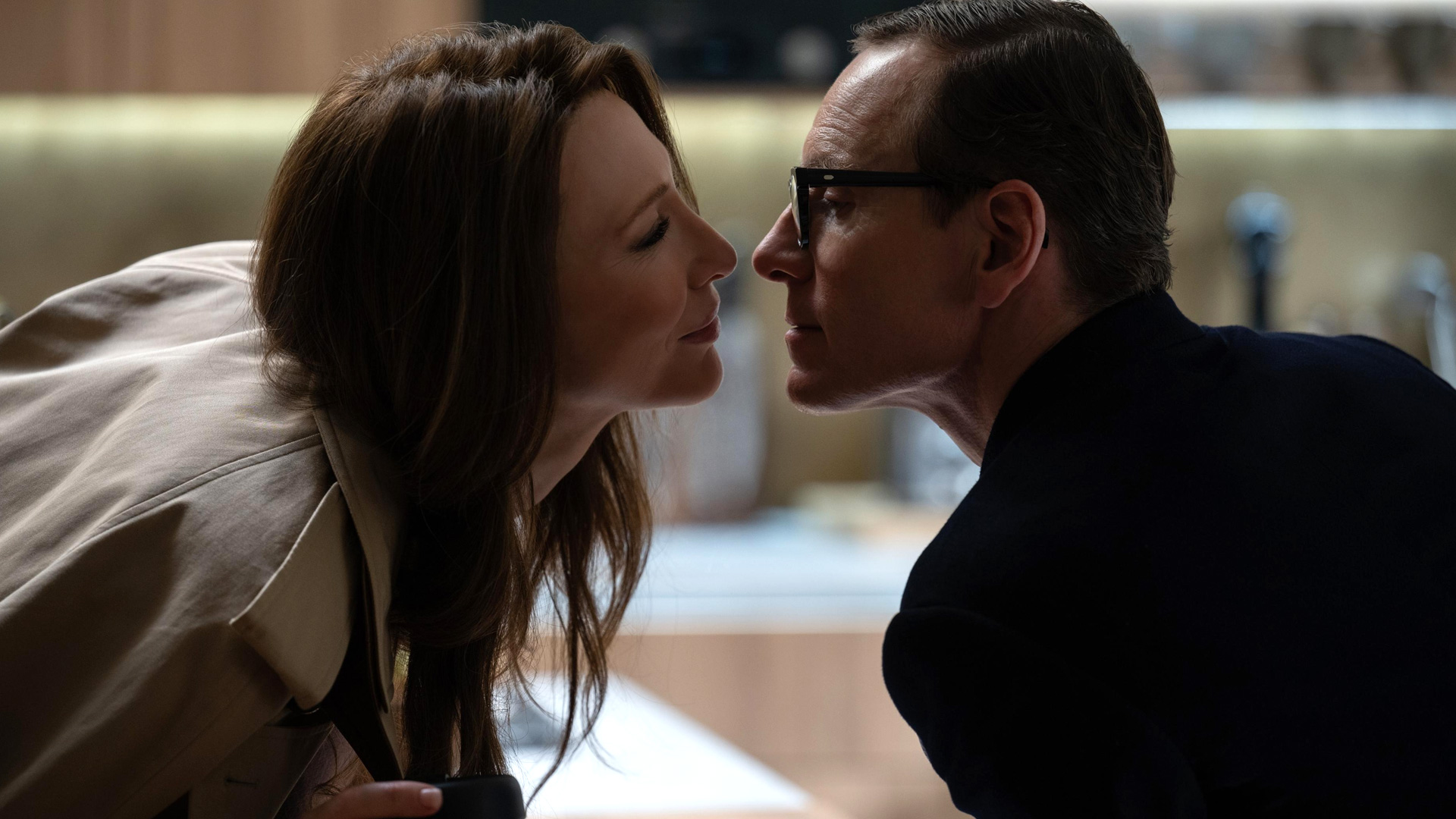
Black Bag
Michael Fassbender and Cate Blanchett star in Steven Soderbergh’s brisk spy pic as husband and wife operatives whose marriage is threatened when George (Fassbender) learns Kathryn (Blanchett) may have sold his country out. With the black bag of the title referring to how both secrets and a relationship can survive one another, Soderbergh unveils a network of romantic dysfunction and duplicity with delicious fervour.
The result is “the most exciting film of the year so far,” writes Rory Doherty. “Black Bag reels you in with simmering, ill-behaved characters and tightly-wound thriller mechanics.”
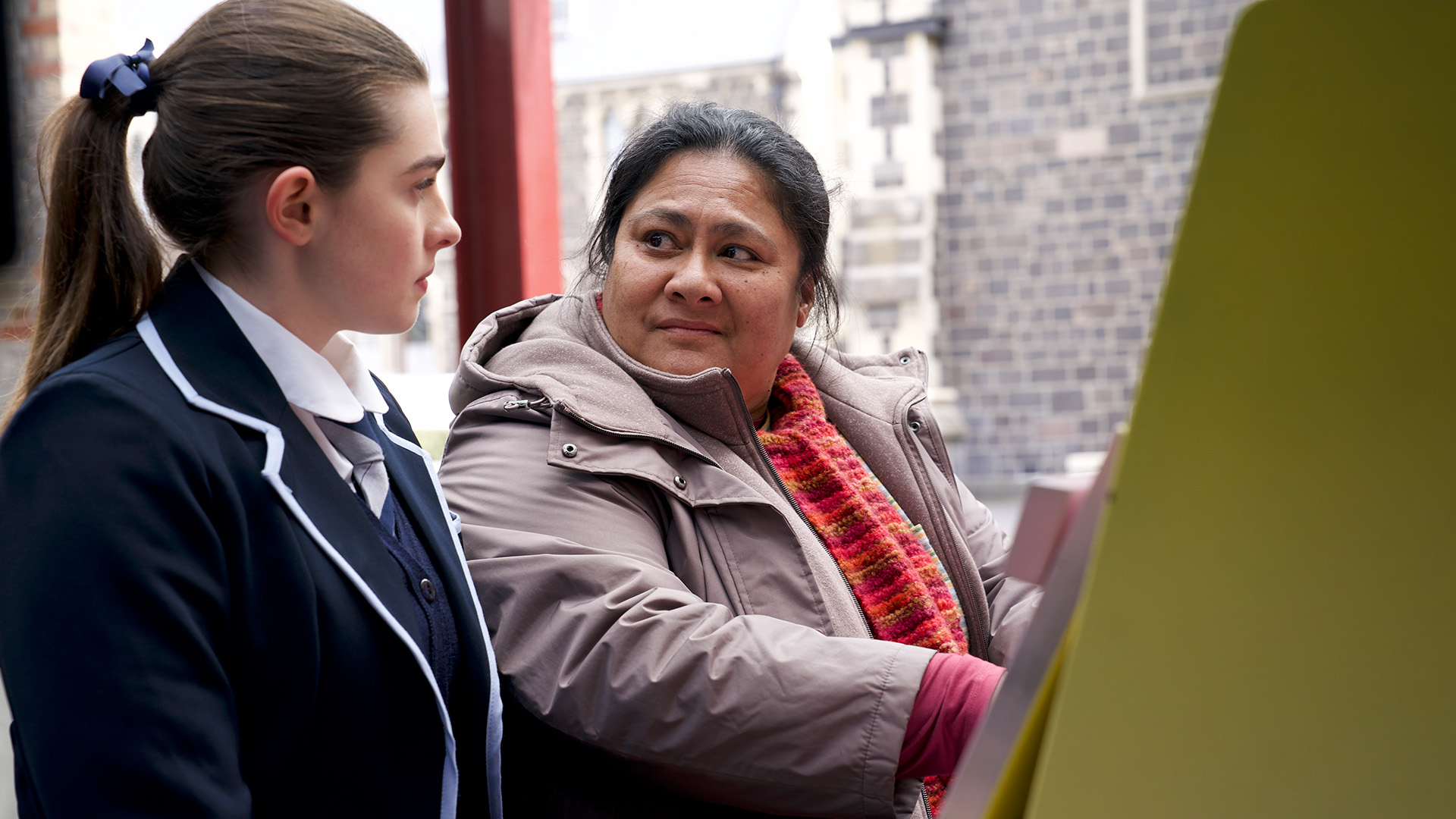
Tinā
A grieving Samoan mother finds unexpected senses of purpose and connection in this Aotearoa drama that’s been setting box office records since its release in New Zealand. In the wake of the Christchurch earthquake, Mareta Percival (Anapela Polataivao) takes on a substitute teacher role at an elite (racist) public school, and discovers students in need of guidance, inspiration and love.
The crowdpleaser runs the gamut of emotions from despair to triumph and anger—and is often more genuinely hilarious than you might expect. “With Tinā, Magasiva has poured his memories, his culture, and his heart into the big screen,” Laumata Volavola notes in her interview with the director: “And if early reactions are anything to go by, he may just have created a new classic that our people can call their own.”
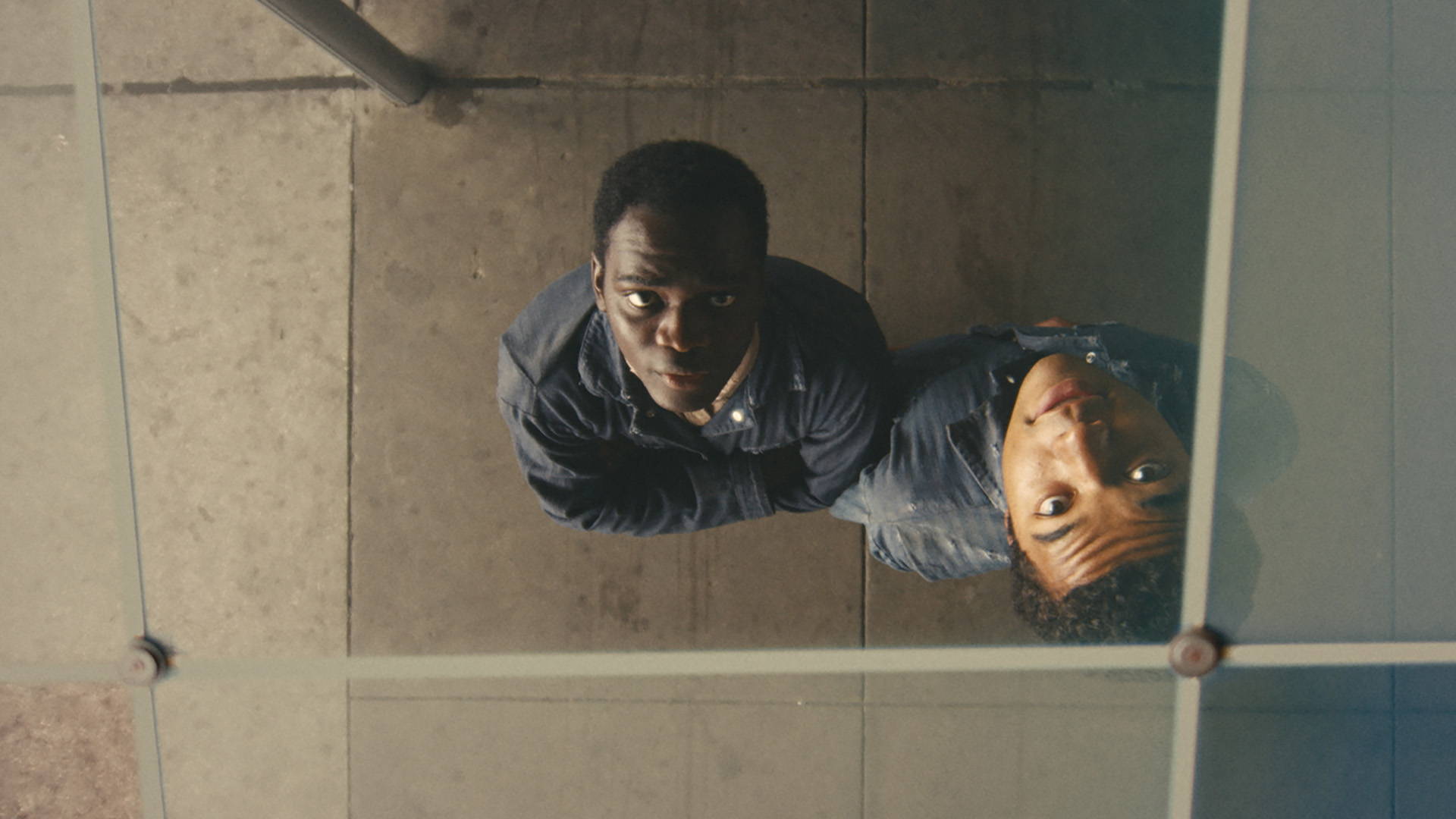
Nickel Boys
Set in the 1960s and following two African-American boys sent to an abusive reform school in Florida, this dual Oscar nominee (for Best Picture and Best Adapted Screenplay) takes a unique approach. Shot from a first person point of view, we spend the duration of the film experiencing it from the perspective of its characters.
As Liam Maguren observes in his feature on the film, “At its most brilliant, Ross’s visual approach solidifies Nickel Boys’ most profound reminder: all these boys’ experiences, memories, and lives mattered.”
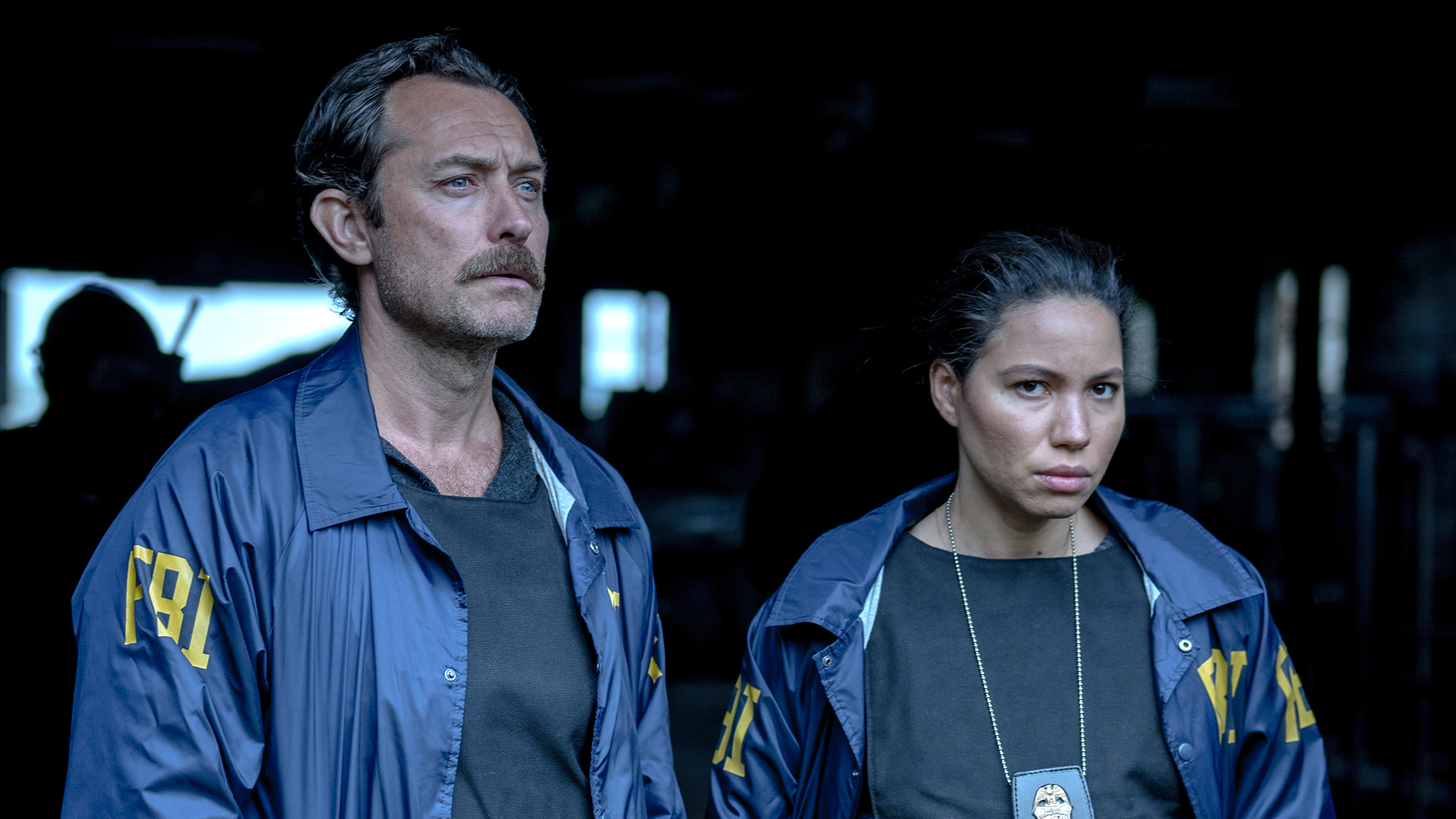
The Order
Jude Law and Nicholas Hoult star in director Justin Kurzel’s 1980s-set thriller, the true story of the FBI’s pursuit of increasingly violent white supremacists led by Bob Mathews (Hoult). As his group The Order escalates from robbery to murder—and towards mass killing—and seek to ignite a racist revolution, this is enjoyable both as a superior cat-and-mouse thriller and to better understand the ideologies of hate.
As I wrote about the film and the racist ideology it explores: “Thinking about how these events of forty years ago have continued to ripple through the US—and into the White House in 2025—lends The Order a chilling quality.”
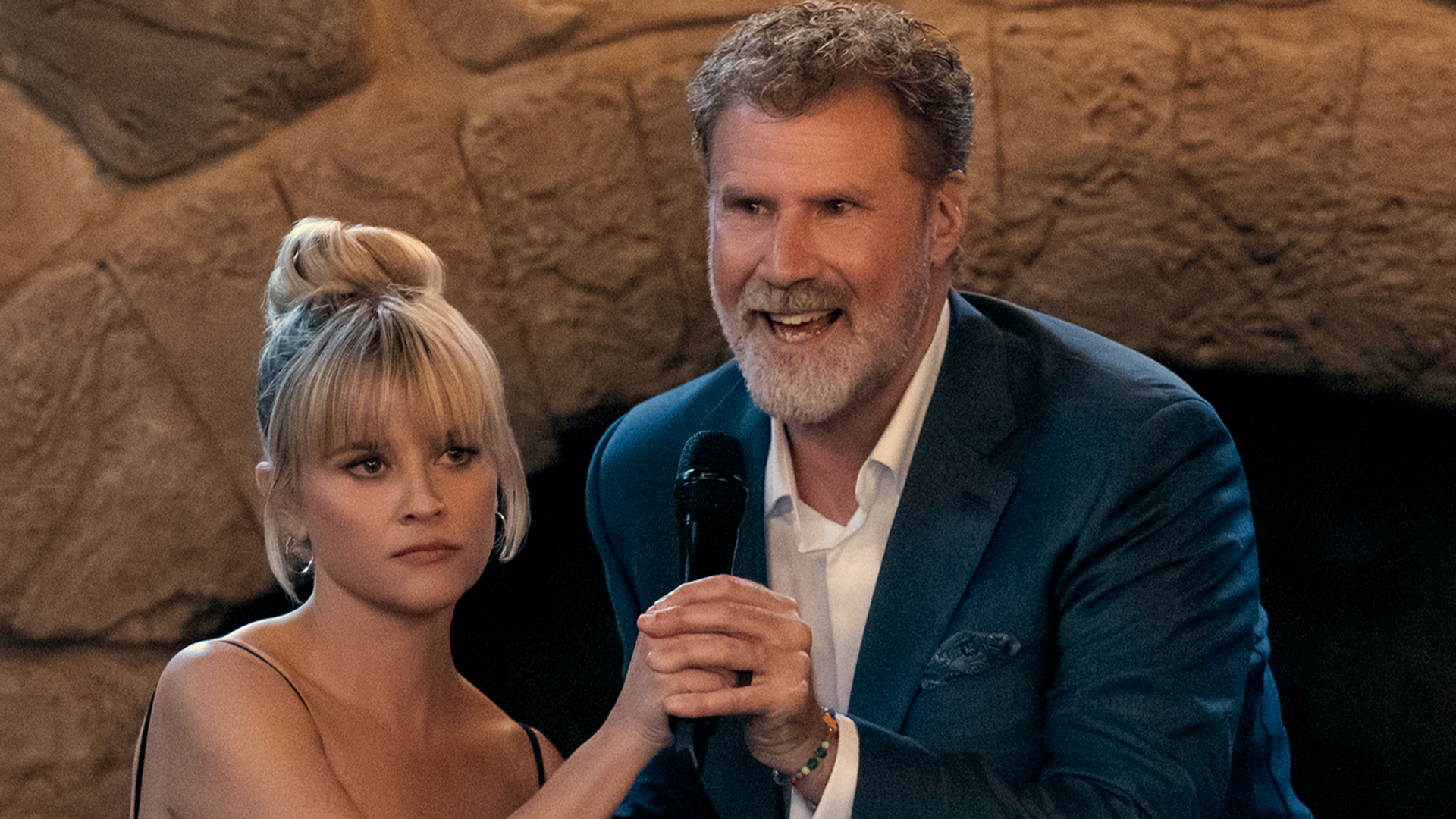
You’re Cordially Invited
This Will Ferrell/Reese Witherspoon comedy is determinedly old-fashioned, echoing the time when a couple of movie stars would team up and their charisma elevate a pretty generic premise. Here, the pair navigate the shock (shockingly bad?) contrivance of having both booked the same wedding venue on the same day—but the entertainment here comes more from their commitment and our existing goodwill to the pair than any storytelling beats.
That’s echoed in Dominic Corry’s piece on the film: “I’m sure you can see where this is going, but again, sometimes it’s nice when a movie tells you where it is going, and goes there. With gusto.”
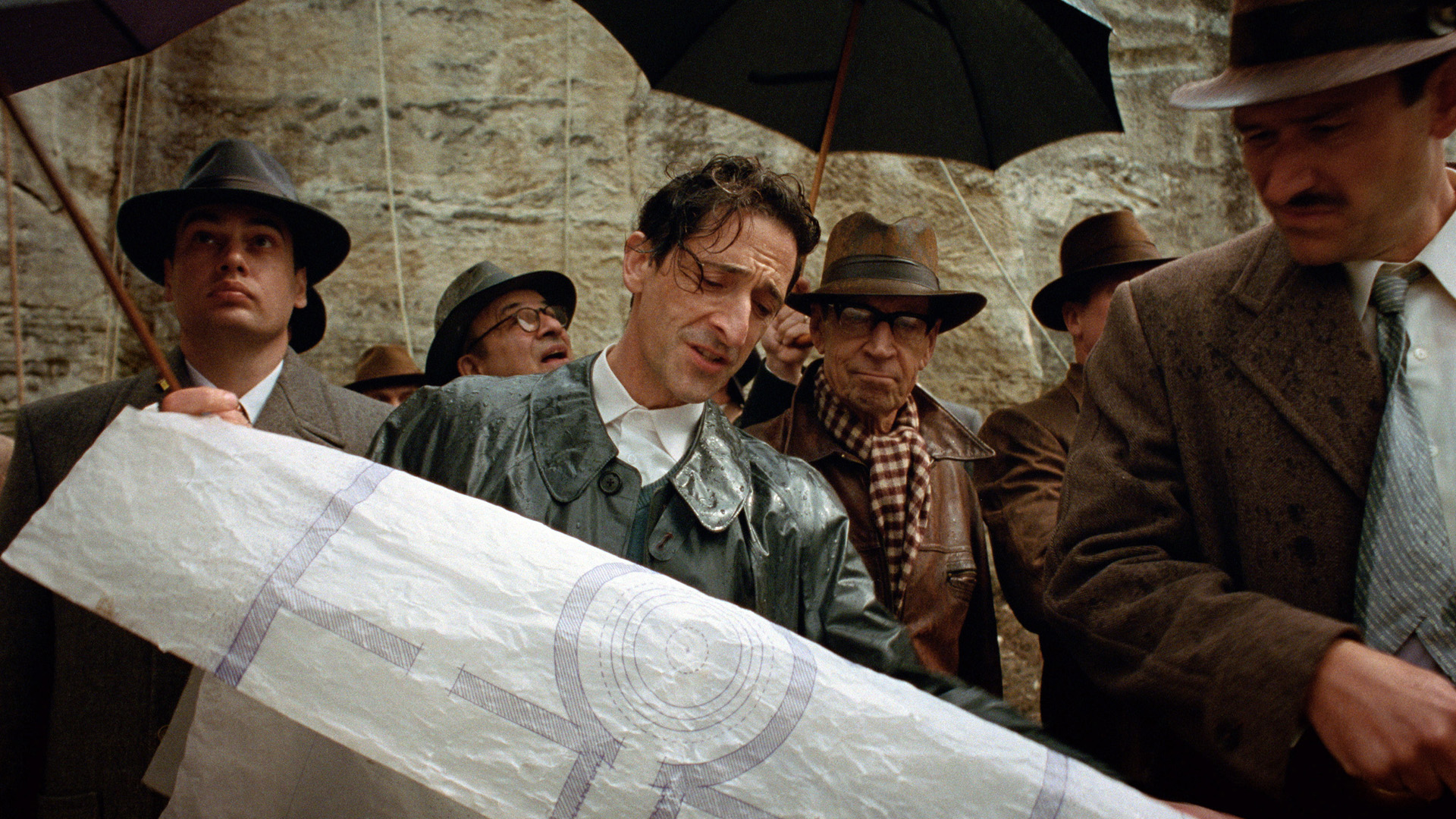
The Brutalist
Lengthy, weighty and visually enormous, this epic period drama about a Holocaust survivor, an ambitious project and the American Dream is a big swing for the fences. Deserving its awards and accolades, the film is gorgeously lensed, something its patient pacing lets us soak in—when it’s not also winding up the emotional blows delivered by a uniformly impressive cast (Oscar winner Adrien Brody, Felicity Jones, Guy Pearce and Joe Alwyn are all phenomenal).
Pearce shared insights on his character in a conversation with Rory Doherty: “I think he’s extremely self-conscious. But he’s cultivated and created this version of himself, which is what the American dream is apparently all about. You can be who you want to be. So he’s his own creation, as such.
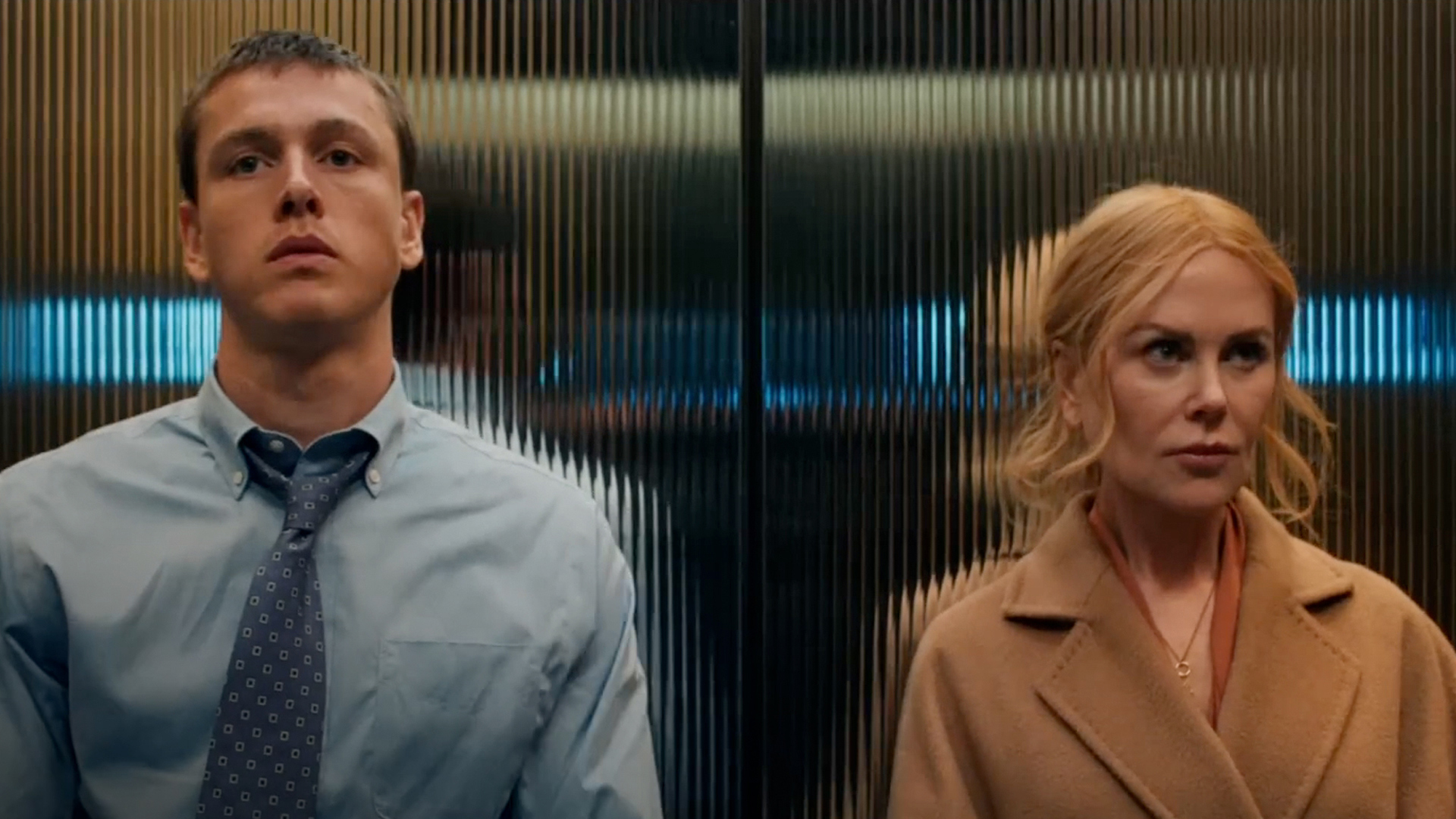
Babygirl
Sexy, smart, gripping (and funny when it wants to be), Halina Reijn’s Babygirl is a provocative modern take on the classic sex thriller. Nicole Kidman’s successful CEO may have an outwardly perfect life, but it’s one she puts in jeopardy when she has an affair with young intern Samuel (Harris Dickinson), setting in motion an intriguing exploration of shame and rebirth.
Cat Wood’s feature on the film notes “how vital Reijn’s movie is in enforcing a woman’s perspective in all its contradictory, confounding nuances”. And as the filmmaker told me when we joined each other for an interview: “I always felt very lonely in my dark sexuality, and I thought as a woman that I wasn’t allowed to have masochistic fantasies, and I thought I was weak, and that was not feminist.”
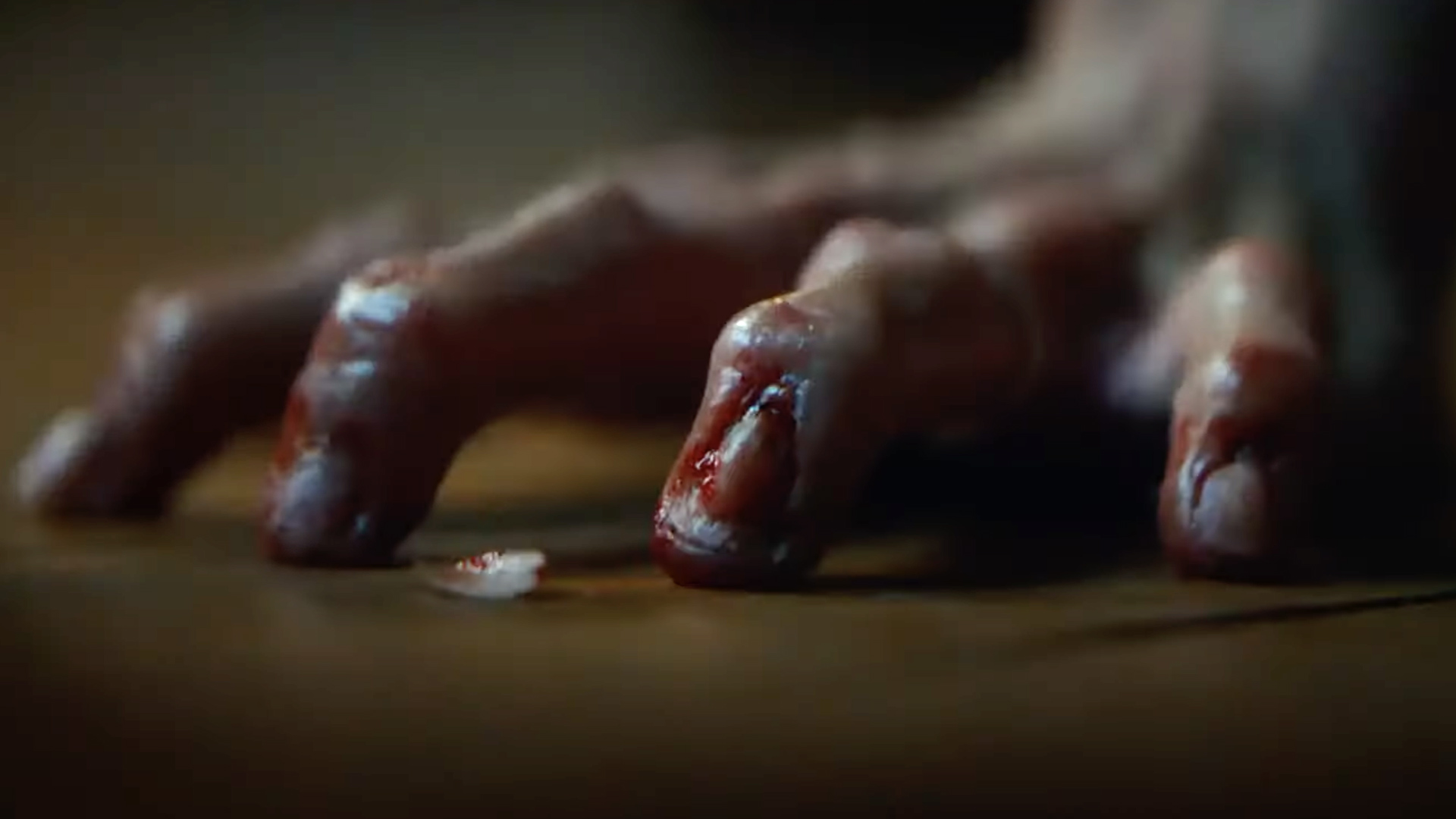
Wolf Man
After the body transformation sci-fi of Upgrade and his intriguing update to The Invisible Man, director Leigh Whannell tackles a classic lycanthrope in Wolf Man. Christopher Abbott stars as a man trying to protect his family from a werewolf, only to find himself transforming into the deadly creature.
Luke Buckmaster’s piece on the film describes Wolf Man as “bold, very skillfully made, and profoundly disquieting”—adding “No other werewolf movie has put me in such a state of anguish and despair”.




































